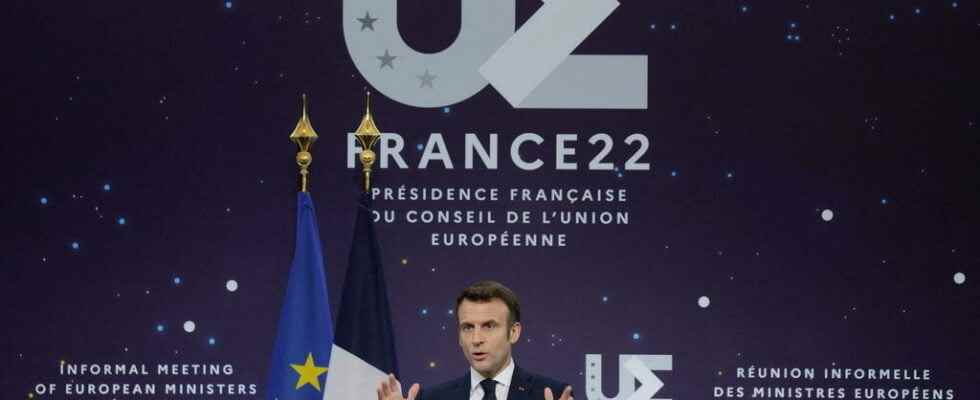All of the European ministers in charge of space issues met in Toulouse on Wednesday 16 February. On the menu of the discussions, the future European ambition for space. A day also marked by a speech by Emmanuel Macron, with a key word: sovereignty.
“ We have a tenth of NASA’s budget, yet look at what we can do smiles Luca Parmitano. The astronaut from the European Space Agency (ESA) enumerates: We have the best Earth observation satellites for studying the climate. Our navigation system Galileo is much more accurate than GPS. Imagine if we had the same budget as NASA! “.
Although it is unlikely that in the short and medium term Europe will invest as much as the United States in the field, the milestones for this day of discussions have been laid. What does Europe want to do in space? With what means?
” Without control of space, there is no sovereignty “, thus advanced Emmanuel Macron in the preamble to his speech. ” Space should be a priority. ” The Head of State thus makes an observation: navigation, military, telecommunications, whole sections of the ” Powerful stem from spatial means. Alas, according to Emmanuel Macron, “ Europe has missed strategic turning points by missing the mark on the emergence of the private sector, on reusable launchers, satellite constellations. ” If Europe is very largely absent from this new deal, it is because we did not sufficiently assume our space adventure a few years ago. Basically because we didn’t believe in ourselves enough. »
On the satellites, even if the challenge of this day was mainly forward-looking, an agreement was nevertheless reached. Europe will certainly equip itself with its constellation of satellites. ” 250 devices to provide very high speed access to Europe and Africa “says Bruno the Mayor. ” This is a major step forwarde”, for the Minister of Economy, Finance… and Space. This project will be launched in 2024, and will allow Europe to free itself from dependence on technologies developed in the United States or China.
► Also to listen: Space: Beginning of tests for Ariane 6
Macron cautious on space exploration
Space sovereignty also means not depending on others to send astronauts into orbit. Europe today does not know how to do this and calls on the services of its Russian and American partners. Will we be able to see Thomas Pesquet take off one day from the Guiana Space Center aboard an Ariane rocket?
On space exploration, no speeches à la Kennedy by Emmanuel Macron. Emmanuel Macron remains cautious, he is content to ask questions that must be answered quickly. “ Are we aiming for the moon, where the Chinese will soon return? Then Mars, what are the Americans aiming for? Here too, we must consider a European position for a first international human mission to Mars, probably at the end of the next decade. The subject was referred to the ESA Ministerial Council in November. In the meantime, a group of European experts must be formed and work on the subject. It will make its recommendations this summer.
Finally, making space a sovereign territory requires the application of rules of good conduct. Gold, “ if today someone wants to knock out one of your satellites, you can’t tell them anything, it’s the Wild West “, explains Bruno the Mayor. Very few rules indeed govern behavior in orbit. There are no clear instructions on responsibilities in the event of collisions, in the event of espionage between satellites. France had in particular paid the price recently.
To overcome this lack, the ministers therefore agreed on the establishment of a regulatory framework, again by 2024. However, this will be limited since it will only bind European countries. A difficulty of which the actors of the European space are aware, because it will be necessary to know how to convince the other actors of the sector, with in the first place China, Russia and the United States, to use these good practices.
► Read also: French Presidency of the EU: what ambitions for Europe in space?
